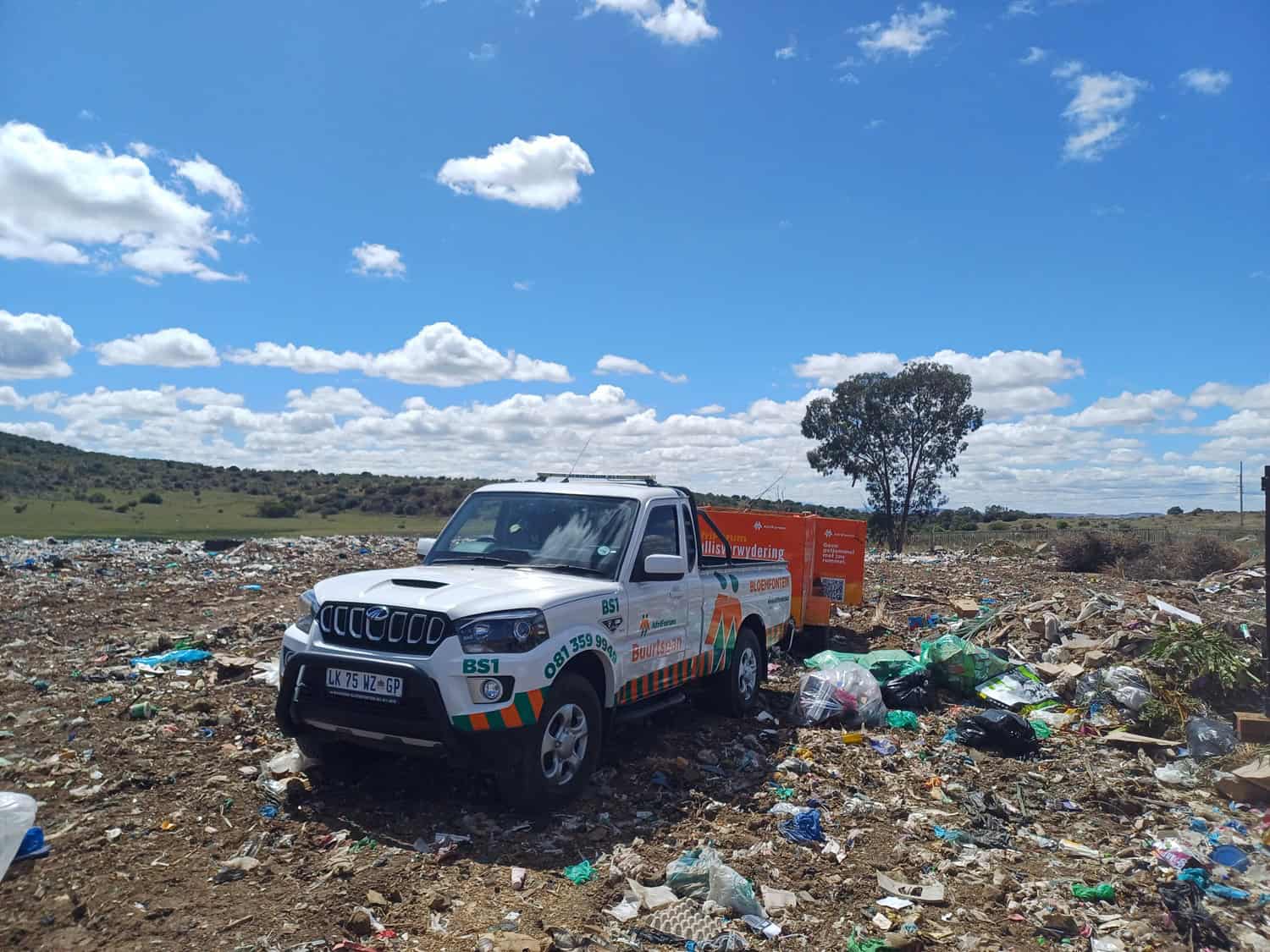Poor waste management actual cause of dilapidated Mangaung landfills – AfriForum
The landfill sites in Bloemfontein are in a horrible condition, posing serious environmental, health and safety risks to residents. This information came to light in AfriForum’s landfill audit report for 2025 after inspecting the two landfills in the Bloemfontein area – which are managed by the Mangaung Metropolitan Municipality – earlier this year. AfriForum is, however, of the opinion that the main cause for the condition of these landfills is not due to poor service delivery, but rather the total collapse of the Metro’s waste management.
AfriForum’s independent audit of Bloemfontein’s northern and southern landfill sites paints a devastating picture of decay and abandonment: There is a massive safety issue on both landfill sites where the residents are not willing to go onto the landfills; the waste is not covered with soil daily, as required by national landfill standards; and the open burning of waste is widespread, creating toxic air conditions and fire hazards. The audit further indicates that there is no access control, resulting in illegal dumping, trespassing and even informal shack-building within the landfill boundaries. There is also no environmental monitoring, rehabilitation or basic compliance, as mandated by the Department of Forestry, Fisheries and the Environment’s Minimum Requirements for Waste Disposal by Landfill.
The irony, however, is that the Mangaung Metro’s internal documents quietly confirm that these landfills are not up to standard. In its latest presentation on waste management, the Metro admits that only 48 out of 119 positions at the landfills have been filled, indicating a staggering vacancy rate of 60%. According to the submission, the Metro operates with only five active machineries at landfill sites across seven towns and no capital budget has been spent to develop or upgrade the Metro’s largest landfill sites despite the more than R4,7 million allocated for the development of new facilities that remain untouched.
“These aren’t just neglected sites – it’s turning into dangerous landfills with no oversight. Residents and even private contractors are nowadays afraid to enter these areas due to uncontrolled dumping, fires and criminal activity,” says Lambert de Klerk, Manager for Environmental Affairs at AfriForum.
Meanwhile, the Mangaung Metro continues to waste public money. According to the Metro’s own figures, it overspent its unstructured overtime budget by over 160% this year due to a crippling shortage of refuse trucks and yet services have worsened. The Metro’s attempt to outsource refuse services is nothing more than a patchwork response to a system in freefall.
Despite publicly promoting future “economic hubs” at landfill sites, zero progress has been made to restore basic function or enforce regulation. There is no security, waste is not weighed and there is no record keeping. In some cases, site entrances are open 24/7 without any staff or surveillance.
“This isn’t a case of poor service delivery anymore. The Metro’s waste management is collapsing, which poses a public health emergency,” says De Klerk.
The poor management of waste services has resulted in private waste removal services, including AfriForum Dienste, starting to work across Bloemfontein to fill the void. Yet residents are still expected to pay full rates to Mangaung for refuse removal and landfill services that simply do not exist. AfriForum once again calls on the Mangaung Metro for the immediate release of its compliance audits for the landfill sites and environmental reports; for the independent oversight of municipal waste services under administration; and for the speedy registration of private service providers in terms of the Metro’s own waste management bylaw.











